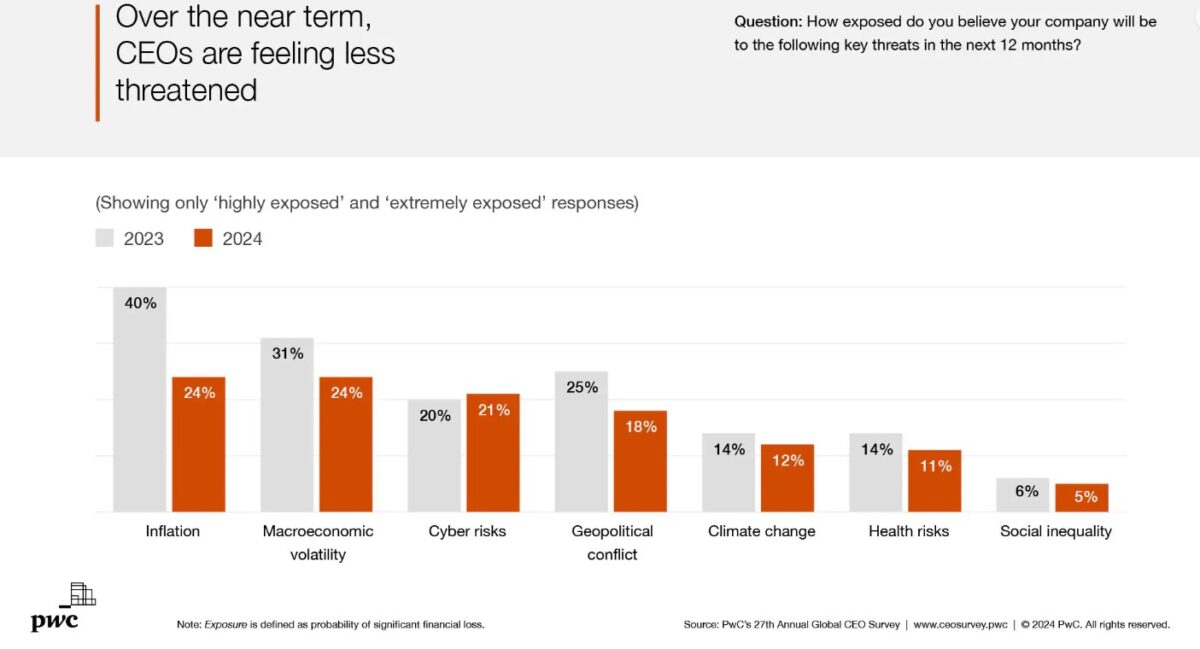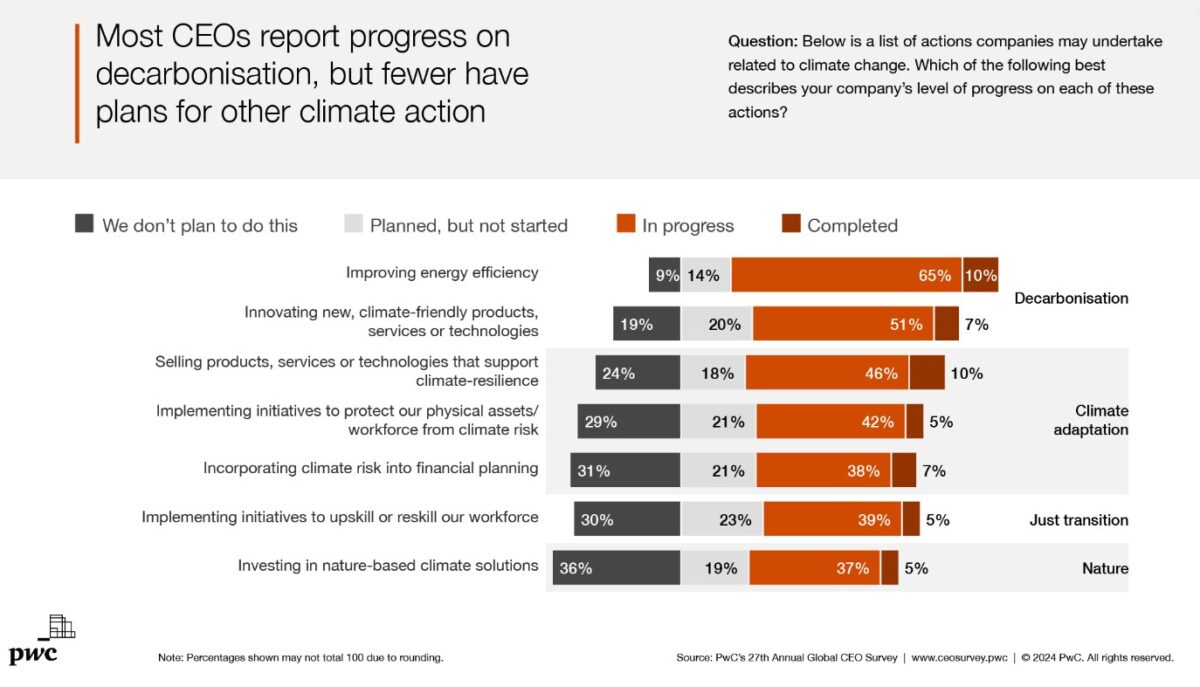If your company were to make no changes to its business model going forward, how long do you think it would remain economically viable?
That was one of the questions posed in PwC 27th Annual Global CEO Survey released on Monday. Titled “Thriving in an age of continuous reinvention,” it asked 4,702 CEOs about how they viewed the future of their companies in an age of fast-evolving technology, existential threats like climate change and geopolitical conflict.
In 2023, 39% of CEOs surveyed said their company would last fewer than ten years if they made no changes to the business. In 2024, that number went up to 45%, and the number of CEOs who thought their companies could thrive for more than ten years without changes fell from 59% to 53%.
It’s fair to say the “age of continuous reinvention” is here.
Here are some of the survey’s findings:
CEOs are worrying less
While the world going into 2024 is chaotic, CEOs are feeling less threatened than they were just a year ago, especially when it comes to the economy. In 2023, 40% of CEOs polled felt “highly” or “extremely” exposed to the threat of significant financial loss due to inflation; in 2024, that number dropped down to 24%.
In all but one of the key threat areas — which, in addition to inflation, include macroeconomic volatility, cyber risks, geopolitical conflict, climate change, health risks and social inequality — CEOs said they felt less threatened. The one exception was cyber risks, which went up by one percent from 20% in 2023 to 21% in 2024.

(Courtesy PwC)
Decarbonization is a priority
CEOs may report slightly less worry about climate change this year compared to the 2023 survey, but that doesn’t mean they’re being complacent. A solid majority — 75% — of CEOs say that their company has a decarbonization plan either in progress or completed for increasing energy efficiency, with only 9% saying they have no plans to do it at all. Whether this trend is based on ecological concerns or the fact that energy efficiency cuts costs, green policy has become pretty standard.
Over half (58%) of CEOs also say that they are developing or have developed eco-friendly products and services, with 20% saying they have no plan to do so.
When it comes to incorporating climate risk into the company’s financial planning, 7% have completed it, 38% are in the process of incorporating it, 21% plan to do it in the future and 30% have no plans to do it.

(Courtesy PwC)
Adapting to AI
It wouldn’t be a 2024 survey with questions about artificial intelligence. Here are some noteworthy figures from the report:
- Over the previous 12 months, just over half (51%) of CEOs said they had not adopted generative AI across their company, compared to 31% that said they had.
- When asked to look forward, it shifts: 58% of CEOs said AI would improve their products or services over the next 12 months, while just 26% disagreed.
- When it comes to the next three years, 70% of CEOs expected AI to significantly change the way they do business, including requiring their workforce to acquire new skills, with 18% disagreeing.
- Though a majority of CEOs see generative AI as an opportunity, 14% expect to lay off at least some employees in 2024 because of AI. At the same time, 56% of CEOs plan to increase their workforce in 2024, more than offsetting the potential job losses.
Even beyond AI, CEOs are feeling the pressure to reinvent their companies to keep up with evolving technology, changes in customer preferences and demographic shifts. Technology change drives 56% of the adjustments companies are making.

(Courtesy PwC)
The takeaway
Just as workers need to continuously upskill and evolve to remain valuable to their companies, companies also need to reinvent themselves as technology changes, and a majority of CEOs know that.
Before you go...
Please consider supporting Technical.ly to keep our independent journalism strong. Unlike most business-focused media outlets, we don’t have a paywall. Instead, we count on your personal and organizational support.
Join our growing Slack community
Join 5,000 tech professionals and entrepreneurs in our community Slack today!

The person charged in the UnitedHealthcare CEO shooting had a ton of tech connections

Delaware students take a field trip to China using their tablets and ChatGPT

From rejection to innovation: How I built a tool to beat AI hiring algorithms at their own game



